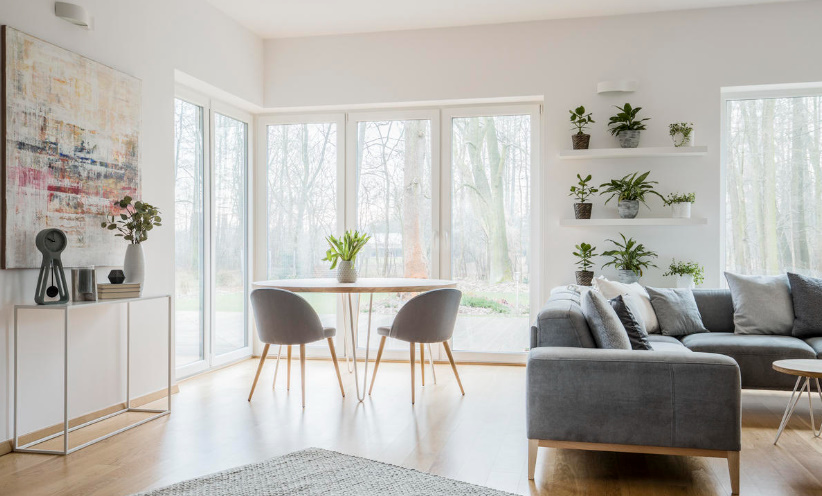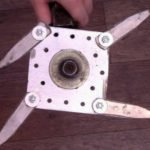Do you like panoramic glazing in a country house? Lots of light, beautiful view… But if you do not create a thermal curtain in front of such a window, then it will be uncomfortable to be in the room because of cold floors!
When planning a heating system, homeowners are increasingly choosing convection equipment that is built directly into the floor instead of traditional radiators. Heating convectors, creating an air curtain, isolate the room from drafts and prevent cold streams from entering the room, the sources of which are cracks in the windows and joints in the walls.
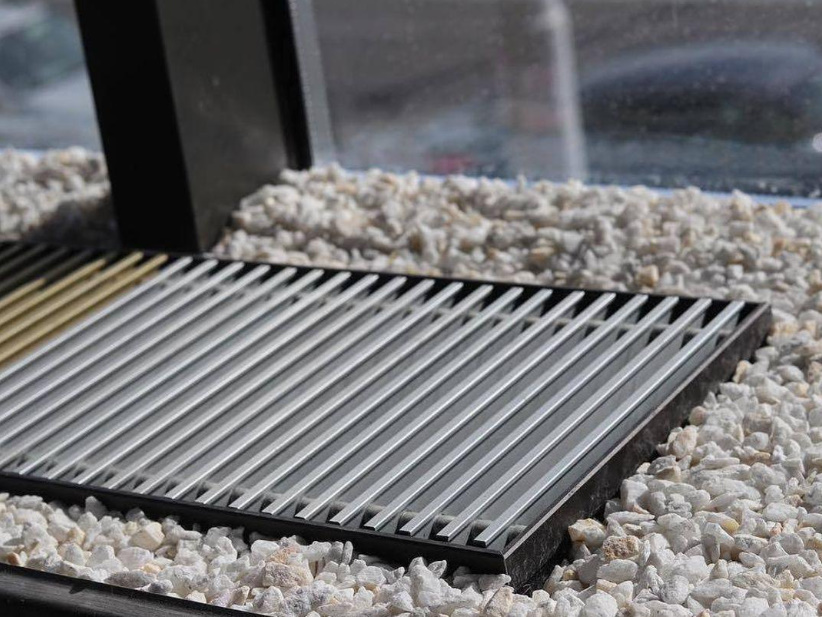
The main advantage of the devices is that they do not reduce the useful volume of the room and, accordingly, do not violate its overall design. Thanks to the installation in the base of the floor, it is possible to remove not only the units themselves, but also the pipes to them.
Design features
Convection heaters are produced in a strong rectangular frame housing, sheathed on the front side with a metal decorative grille. A heat exchanger is located in the housing, which receives thermal energy from a circulating liquid coolant or from an electric heater.
It should be said that the efficiency of water heaters is noticeably less, but their fire hazard level is much lower: practically it is zero. It should also be noted that the dimensions of water convectors should be several times larger than devices powered by electricity.
The problem is that the diameter of their heat–carrying pipe cannot be less than 20 mm, while the cross-section of the heating element of the electric convector is often only 5 – 8 mm. Unfortunately, the large size of water convection units somewhat limit their use depending on the area of the premises.
Devices of different types differ in power, dimensions and configuration, as well as the design of the external grid. In addition, they can have natural or forced convection, and some models are equipped with an automatic control unit, which significantly reduces heating costs.
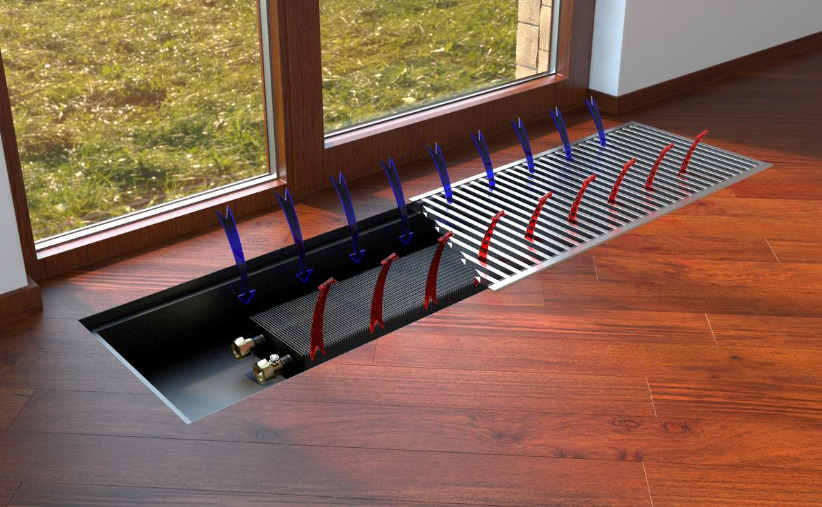
The principle of operation of the indoor heater is the same as that of conventional convectors: heated air, rising up, displaces cold air down, which enters the device and heats up in it.
Selection and installation of convectors
Since the convector is mounted in the floor surface, its heat exchange is much lower than that of traditional heating batteries. Therefore, when choosing it, it should be understood that the power of the unit should be 30-40% higher than the power of a standard-sized radiator. In general, convection heating elements have already proved their reliability and efficiency.
Due to the fact that these heaters are located under the floor covering, there is a possibility of overheating. This must be taken into account when installing fire safety systems and when choosing materials for the floor.
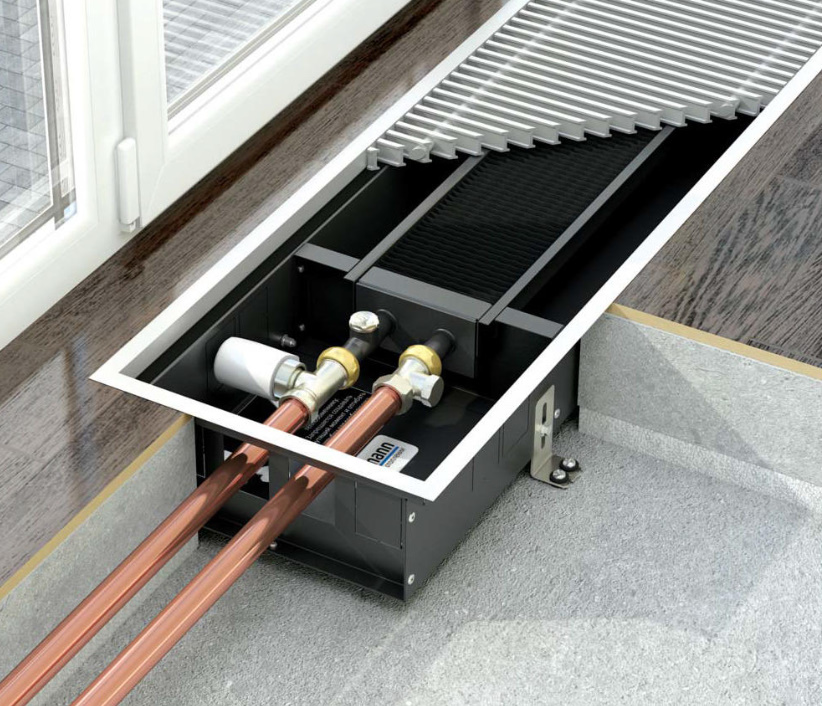
Indoor convectors are mounted strictly horizontally, while providing for the possibility of vertical heat removal: this creates conditions for efficient heat transfer and ensures the fire safety of the room.
In the design of such heaters, special screws are provided that allow precise adjustment of the horizontal position of the front grille to the level of the finishing floor covering.
Indoor convectors can serve as an independent source of heat, or be used as additional elements of the heating system.
